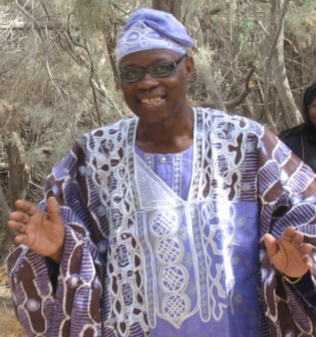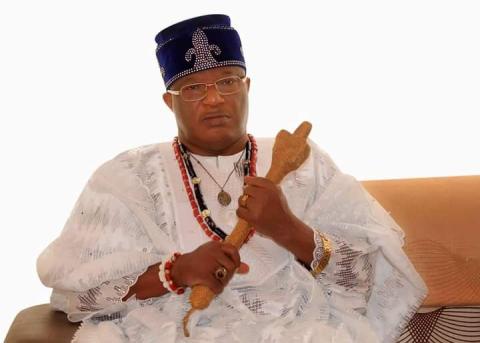
Breaking News: Unilorin Alumi Association: 'We were warned' - Opinion
Breaking News: Breaking: Court Restrains Oyo Assembly from Further Impeachment Process Against Makinde’s Deputy, Olaniyan
Breaking News: Labour leaders physically assault Ogun journalists for covering strike, harass hospital workers
Breaking News: Congratulations Asiwaju – Osinbajo’s spokesperson accepts defeat
Breaking News: Finalissima: Messi steals show, beats European Champion, Italy
However big the headline change in the vote between the past two elections, drill down into two demographic pockets of Britain and you find staggering shifts.
It all centres around the relationships between the Labour Party and not just Muslim voters, but Jewish voters too.
It leaves a party in government that has made progress in winning back trust among people from one faith group while suddenly finding itself with a lot of work to do to win back many members of the other.
The drop in the Labour vote share among British Muslims between 2019 and 2024 very obviously played out in several constituencies. This happened most dramatically in Leicester South, with a Muslim population close to 30%, where Shadow Paymaster General Jon Ashworth lost his seat to independent Shockat Adam.
In the seat of Dewsbury and Batley, in Birmingham Perry Barr and in Blackburn, there were wins for independents in what had been safe Labour seats with large numbers of Muslim voters.
In places like Bradford West and the seat of Bethnal Green and Stepney in east London, sitting Labour MPs clung on with startling reductions in their majorities.
Mish Rahman, from Walsall, is not just any Muslim voter. He currently sits on the National Executive Committee (NEC) of the Labour Party, a body of fewer than 40 members.
He is furious with the party’s response to the killing of tens of thousands of people in Gaza and the humanitarian crisis there.
“In my community it has got to the point where I am now embarrassed about my affiliation with Labour,” he says.
“It was hard even to tell members of my own extended family to go and knock on doors to tell people to vote for a party that originally gave Israel carte blanche in its response to the horrific 7 October attacks,” says Mr Rahman.
He lays the blame for the decline in Muslim voting for Labour squarely at the door of the Labour leader.
Sir Keir Starmer was criticised by many in his party, including councillors, for an interview with LBC in October in which he suggested that Israel “had the right” to withhold power and water in Gaza. His spokesman subsequently suggested the Labour leader had only meant to say Israel had a general right to self-defence.
Then when Labour MPs were told by the party leadership in November to abstain from voting on an SNP-led motion calling for an immediate ceasefire in Gaza, some Labour councillors resigned and, for many Muslims, trust in their Labour MP was lost.
Faith communities are far from homogenous, of course. There are myriad factors that govern how a person will cast their vote, but faith does throw up a unique set of considerations that plays out in broad voting patterns.
Muslims are estimated to form around 6.5% of the population of England and Wales, with around 2% in Scotland and 1% in Northern Ireland.
Well over 80% of Muslims are believed to have voted for Labour in 2019. Research just ahead of the 2024 election suggested that had dropped nationally by up to 20 percentage points, and in some constituencies the Muslim vote for Labour clearly fell further.
The contrast with Jewish voting data could not be more stark. In 2019, the proportion of British Jews (about 0.5% of the population) who voted for a Labour Party led by Jeremy Corbyn is thought to have collapsed to just single figures. Research suggests that figure could have climbed back to above 40%.
“What we have seen is a huge bounce-back for Labour among Jewish voters,” says Adam Langleben, who was until recently the national secretary of the Jewish Labour Movement.
Mr Langleben, a former Labour councillor and now director of Progressive Britain (formerly Progress), points to Labour wins in London in the Finchley and Golders Green seat and also Hendon as well as Bury South in Greater Manchester, all constituencies with large Jewish populations.
“Jewish voters returning to the party has undoubtedly delivered seats to the Labour Party,” says Mr Langleben.
“You don’t need a majority of Jewish voters to win in these constituencies, but you also can’t only have 7% of them voting for you and expect to win,” he says.
Mr Langleben had been a senior member of the Jewish Labour Movement but was one of many Jewish members of the party to give up their membership during the Corbyn era. When he left in 2019, he said it was on account of the party being “led by antisemites”, an accusation always strongly denied by those leading the party at the time.
“It was a situation that was all-consuming. I would be canvassing for the Labour Party in a Jewish area and had people in tears on the doorstep saying there was no way they could vote for Jeremy Corbyn, and I was trying to juggle this huge personal tension,” he says.
Mr Langleben puts Mr Corbyn’s problems down to both a lack of personal reflection about who he was associating with, and what he says was the party’s inability to deal with extreme elements in its base and tolerance of the use of antisemitic tropes.
“From day one, Keir Starmer pledged to work with the Jewish community to try to deal with the issues inside the Labour Party. For him, fixing what went wrong was a personal mission,” he says.
But given that Keir Starmer supported Jeremy Corbyn throughout his leadership, Jewish voters at hustings in synagogues and community centres around the country had been grilling Labour candidates as to why they should trust the current leader now.
“The Jewish vote is now split and that’s how it should be. The results show there wasn’t a dominant party of choice, and that’s healthy, and still represents a huge transformation for Labour,” says Mr Langleben.
So while mistrust clearly still remains, what is responsible for the transformation in the perception of the Labour Party among some British Jews?
The fact that the current leadership’s criticism of Israel’s response to the 7 October attacks has been more tempered than it may have been under the previous leadership may have contributed.
But long before that, Mr Langleben cites a change in the way complaints around “protected characteristics” like faith are dealt with by the party, but also refers to one thing that convinced him he was right to re-join the party.
“The fundamental moment was Jeremy Corbyn being suspended from the Labour Party and then subsequently having the whip removed, because it showed Keir Starmer’s determination and his willingness to take on parts of the party that previously he had not been willing to take on,” he says.
Jeremy Corbyn’s suspension is precisely identified by Mr Rahman too as the first major showdown between different wings of the party under Keir Starmer.
Except, as someone who had been inspired by Mr Corbyn from the days of Stop the War protests in the lead-up to the UK-backed invasion of Iraq in 2003, Mr Rahman was on the other side, saying that was the moment when the alarm bells started ringing for him that the party leaders were not safeguarding the values he believed in.
Mr Rahman does not see the party’s anti-Muslim slant as being limited to its response to events in Gaza. He does not question there have been serious cases of antisemitism but does not believe all accusations of racism are treated equally.
“There is a clear hierarchy of racism in the Labour Party. Some instances of racism, including Islamophobia, aren't taken as seriously as they should,” he says.
Mr Rahman cites the case of Trevor Phillips, the former chair of the EHRC, who was suspended for alleged Islamophobia.
Mr Phillips had said British Muslims were “a nation within a nation” and previously that their opinion was “some distance away from the centre of gravity of everybody else’s”, though later he suggested this had not necessarily been meant as a criticism.
Mr Phillips was readmitted to the party in 2021 without it going to a panel inquiry.
Mr Rahman, like many other Muslims, also points to Keir Starmer’s own comments, like those made in a Sun livestream during the election campaign, when he talked of migrants being sent back to the countries they came from.
“At the moment, people coming from countries like Bangladesh are not being removed because they’re not being processed,” the Labour leader said.
“Can you imagine the Labour Party saying that about people of any other ethnicity? Saying they're going to deport people to Israel or Ukraine or Hong Kong? It wouldn’t happen and neither should it,” says Mr Rahman.
Such is his disenchantment with Labour’s response that, coupled with wider concerns regarding the treatment of Muslims, he lays a serious charge against the party.
“I don’t doubt for a minute that Labour is currently institutionally Islamophobic,” says Mr Rahman.
Mr Rahman wants to use his voice to call out hypocrisy in the party while in government, in the hope that it will learn what he says is a lesson of this election - that no voter can be taken for granted.
Mr Rahman did give up his membership of the Labour Party once before, in protest at Tony Blair’s role in the Iraq War.
He, and other Muslims, felt persuaded to come back to the party in 2014 when the then-leader Ed Miliband condemned the scale of an Israeli operation in Gaza and the hundreds of civilian deaths.
Once again, at the same moment, Mr Langleben was seeing things very differently on the doorsteps of Jewish voters.
Even though Mr Miliband was himself Jewish, it was a time when polls were showing a rapid decline in Jewish support for Labour, particularly when the party’s 2015 manifesto talked about a parliamentary vote to recognise a Palestinian state.
“There were sometimes quite horrible conversations with Jewish voters who really cared about the issue of Israel,” says Mr Langleben.
“People in 2015 were accusing the Labour Party of antisemitism, but I think it fundamentally misread what antisemitism is. Then, it was a primarily about a foreign policy issue, Israel. That changed by 2019 when conversations were around a particular strain of far-left anti-Jewish racism,” says Mr Langleben.
For some of those supportive of the Corbyn-era leadership, that sense that criticism of Israel was being conflated with antisemitism was also something they felt occurred while he was leader.
The Hamas attacks of the 7 October 2023 happened during the week of the Labour Party conference and Mr Langleben says it was strange to see normal political business go on while he and other Jewish delegates were going through a difficult and upsetting period.
Ultimately, Mr Langleben says he has been pleased with the way Keir Starmer has handled the crisis, seeing it as Labour realigning itself with UK and US government policy on Israel.
This is precisely why during this election campaign, Mr Rahman had the hardest conversations on the doorsteps of Muslim voters he had ever had, with anger and frustration boiling over about Israel’s actions in Gaza.
“If you look back at the history of the relationship between our communities and the Labour Party, it's always been a one-sided affair of loyalty from our communities,” Mr Rahman says. The Labour Party’s roots in his own family go back to his grandfather, who was a factory worker in the 1950s and 60s. Mr Rahman talks of feeling “betrayed”.
Gaza of course is not just a Muslim issue, and not all Muslims ranked it is one of the key considerations on which they voted, but it had an impact.
Similarly, Israel policy is not necessarily a major consideration for all Jewish voters, and even for those for whom it is, there are those who are highly critical of the Israeli government and are at odds with the response of Labour under Starmer.
But while over the decades the Jewish vote has swung between the two main parties broadly in line with the general population, it would appear that if one puts to one side all of the rows over anti-Semitism, the party’s outlook on Israel does impact voting intention.
Separately, both Mish Rahman and Adam Langleben are very clear that their accusations of discrimination levelled at the party in different eras do not just relate to party policy on the Middle East.
Even if everyone can be satisfied that accusations of discrimination are dealt with equally, such are the modern tensions around Middle East policy that political parties may struggle to find a position that does not alienate some members of one of these faith communities.
Labour has achieved much in winning back the levels of Jewish voters it has, but it has also left huge swathes of loyal Muslim voters in Britain feeling politically adrift, and large swings in culture and policy over recent years leave many in each community needing convincing of the true nature of the party.
Britons have handed Keir Starmer’s Labour Party nearly two-thirds of the seats in the UK Parliament’s 650-seat House of Commons in what has been described as an “historic” general election following 14 years of rule by the Conservative Party.
Five Key takeaways from the Election
Here are some key takeaways from the results of Thursday’s election.
1. A Tory wipe-out
The Conservative Party, led by former Prime Minister Rishi Sunak, was subjected to its worst loss in history.
The party has lost 250 seats since the last general election in 2019, having won a total of 121 seats this year. Eleven Conservative cabinet ministers were unseated this election.
The Conservative vote share plunged by 20 percentage points since 2019 to just 24 percent, as supporters switched in their droves to Reform UK, the far-right party led by Nigel Farage.
Prominent Tories who lost their seats include former Prime Minister Liz Truss, Commons leader Penny Mordaunt and former cabinet minister Sir Jacob Rees-Mogg.
Farage’s far-right Reform UK party made inroads.
It won four seats, no small achievement for a start-up party, and was supported by 14 percent of voters overall. This is a rise of 12.3 percentage points since the last election, when it was known as the Brexit Party.
The party also drew support in some seats it did not win, securing second place in Dover and Deal, and third in Folkestone and Hythe, Tunbridge Wells, Dartford and Sevenoaks among others.
The rise of the anti-immigration far right group is of great concern to ethnic minority Britons and marginalised communities. Several Reform candidates were suspended ahead of the election because they were found to have made racist comments online.
Meanwhile, the election is a dream come true for Farage, who’s finally heading to the House of Commons as a Member of Parliament on his eighth attempt.
His constituency, Clacton-on-Sea, removed the Conservative incumbent Giles Watling who had held the seat since 2017 by a considerable margin. Farage won 21,225 votes against Watling’s 12,820.
The chairman of Reform UK, Richard Tice, won Boston and Skegness in Lincolnshire and Rupert Lowe, former chairman of Southampton football club, took Great Yarmouth from the Conservative Party, which had held the constituency for the whole 14 years of the party’s time in government.
No one can doubt Labour’s victory, in terms of the number of seats it seized. It made landmark inroads, such as the party’s Tony Vaughan taking Folkestone and Hythe which the Tories had held since 1950. Cities of London and Westminster changed hands to Labour for the first time.
But the centre-left party’s overall share of the vote rose by less than 2 percentage points.
Despite taking 64 percent of the seats, the party only won 34 percent of the actual vote.
In 2019, when the party was led by Jeremy Corbyn, whose low popularity was blamed for Labour’s losses, vote share was only slightly lower – at 32 percent.
Thursday’s vote was marred by low turnout. Sixty percent of voters cast a vote, a fall from the 67 percent in 2019. This is the second-lowest voter turnout, which usually exceeds 65 percent, for a general election since 1885.
“In many ways, this looks more like an election the Conservatives have lost than one Labour has won,” wrote John Curtice, professor of politics at the University of Strathclyde, for the BBC.
Five pro-Palestine independents won seats as Israel’s war on Gaza emerged as a key issue for the UK’s voters.
Corbyn held his Islington North seat as an independent candidate. Shockat Adam in Leicester South, Ayoub Khan in Birmingham Perry Barr, Adnan Hussain in Blackburn and Iqbal Mohamed in Dewsbury and Batley all won seats.
“This is for the people of Gaza,” Adam said after he was announced as the winner.
These contenders all defeated Labour incumbents.
Neither the Conservative nor Labour have called for an immediate ceasefire. They both back what they call Israel’s “right to self-defence”, causing discontent among pro-Palestine and Muslim voters.
On the other hand, the leader of the left-wing Workers Party of Britain, George Galloway, lost the Rochdale seat that he won in a by-election in February by campaigning against the Gaza war. He was unseated by Labour’s Paul Waugh.
Ed Davey’s Liberal Democrat party, which is left of centre, won 71 seats – a massive 63 more than in 2019.
Since 2010, when the Liberal Democrats formed a coalition with the Conservative Party in order to enable the Tories to form a government, having not won a majority of seats, the popularity of the Lib Dems has declined. This year, however, voters seem to have returned to support them.
The party won some critical seats, including Chichester, which was previously held by Conservative Education Secretary Gillian Keegan. Lib Dem member Jess Brown-Fuller won the seat with a majority of 12,146.
The party also won the Lewes seat in a notional gain from the Conservatives after boundary changes. James MacCleary won with 50.6 percent of the votes, taking the seat from former Conservative health minister Maria Caulfield who won just 26.8 percent.
All eyes are now on Starmer, but also the opposition. The Conservatives are not used to being in the shadows and they now have some new opponents to deal with.
Newsletter






We are not gonna make spamming
Copyright By @ HorizonTimes - 2026
BACK TO TOP